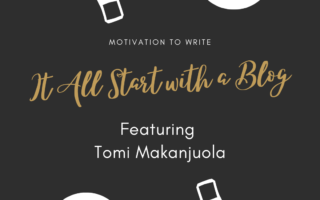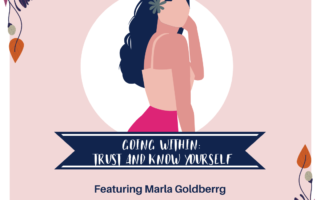Poetry is art. I call it word-art because, unlike most prose, poetry is all about using words to create a visual, aural, and physical experience for the reader. In his book, How to Read Poetry Like A Professor: A Quippy and Sonorous Guide to Verse, Thomas C. Foster says, “Poetry uses language to take us to a place beyond language…Reading poetry requires more than just your brain.” This requirement is the key to poetry’s power. Consider the following three points.
Reading poetry is a…
- Visual experience: The way poetry looks on a page captures your attention. Are the stanzas long or short? Are words capitalized? Which ones? How is punctuation used? What’s the font? Are the words arranged in straight lines or shapes? Then, there’s the imagery. Poets are economical with their diction; they need the biggest bang for their buck, so they choose their words carefully. What images do they convey?
- Aural experience: Poetry should be read aloud—more than once. The sound of poetry is vital to its content and message. Does the poem rhyme? Is there alliteration? Assonance? Consonance? Does it have a meter?
- Physical experience: The imagery, sound, and rhythm of a poem move the reader physically and emotionally. This is especially true when you read poetry aloud or hear it read aloud. Hearing a poem should be like hearing an excellent speech. Your heart beats a little faster, and your adrenaline rises a little higher. You may even clap at the end.
examples
miss rosieby Lucille Clifton (1936-2010)when i watch youwrapped up like garbagesitting, surrounded by the smellof too old potato peelsorwhen i watch youin your old man’s shoeswith the little toe cut outsitting, waiting for your mindlike next week’s groceryi saywhen i watch youyou wet brown bag of a womanwho used to be the best looking gal in georgiaused to be called the Georgia Rosei stand upthrough your destructioni stand up
Visually, this poem catches your eye because it’s short and uses short lines. It also uses neither capitalization nor punctuation except for the name “Georgia Rose” toward the end of the poem. The imagery is evocative. You can see miss rosie, this bag lady, “wrapped in garbage” wearing “old man’s shoes” with the “little toe cut out.” You can also smell her “potato peels” scent.
The Bells
by Edgar Allen Poe (1809-1849)
Hear the mellow wedding bells,
Golden bells!
What a world of happiness their harmony foretells!
Through the balmy air of night
How they ring out their delight!
From the molten-golden notes,
And all in tune,
What a liquid ditty floats
To the turtle-dove that listens, while she gloats
On the moon!
Oh, from out the sounding cells,
What a gush of euphony voluminously wells!
How it swells!
How it dwells
On the Future! how it tells
Of the rapture that impels
To the swinging and the ringing
Of the bells, bells, bells,
Of the bells, bells, bells, bells,
Bells, bells, bells—
To the rhyming and the chiming of the bells
Have you read this excerpt from Edgar Allen Poe’s poem “The Bells” aloud yet? If you haven’t, please do. It is exploding with bell sounds. (This is an example of onomatopoeia: words that make sounds like “ringing” and “chiming.”) Poe uses assonance as he bombards you with the “ell” sound in “bells,” “tells,” “dwells,” and “cells.” He uses consonance, repeating the “s” sound in “listens,” “gloats,” “sounding cells,” “voluminously wells.” Last but not least, he plunges you in a pool of alliteration: “bells, bells, bells, bells, bells, bells, bells.”
Prayer (I)
Prayer the church’s banquet, angel’s age,God’s breath in man returning to his birth,The soul in paraphrase, heart in pilgrimage,The Christian plummet sounding heav’n and earthEngine against th’ Almighty, sinner’s tow’r,Reversed thunder, Christ-side-piercing spear,The six-days world transposing in an hour,A kind of tune, which all things hear and fear;Softness, and peace, and joy, and love, and bliss,Exalted manna, gladness of the best,Heaven in ordinary, man well drest,The milky way, the bird of Paradise,Church-bells beyond the stars heard, the soul’s blood,The land of spices; something understood.
I always imagine George Herbert dropping the mic after he finishes reading his sonnet, Prayer (I). Reading this poem is like opening a closet marked “prayer” and having all these metaphors topple over you. Is there any part of the universe that Herbert didn’t name drop? He calls prayer everything from a “man well drest” to “God’s breath” to “the milky way” to “the soul’s blood.” Religious or not, you have to admit the man can use imagery pretty darn well. Round of applause, Mr. Herbert. Round of applause.




I must admit, while I love reading, I’ve never quite gotten into poetry, except maybe for some of the “insta-poets”. But I do want to read more poetry, mostly because I am usually amazed at how poets are able to convey so much with so few words. I’ll keep in mind the physical/aural/visual aspects that you mentioned. I am sure it will elevate my poetry reading experience.
Hi, Shirsha. You’re not alone. A lot of people keep their distance from poetry. I hope you find some poetry you can vibe with! Thanks for reading. 🙂